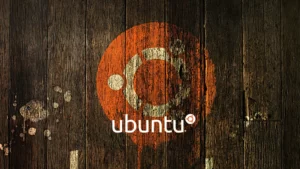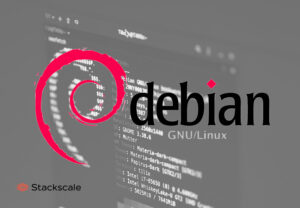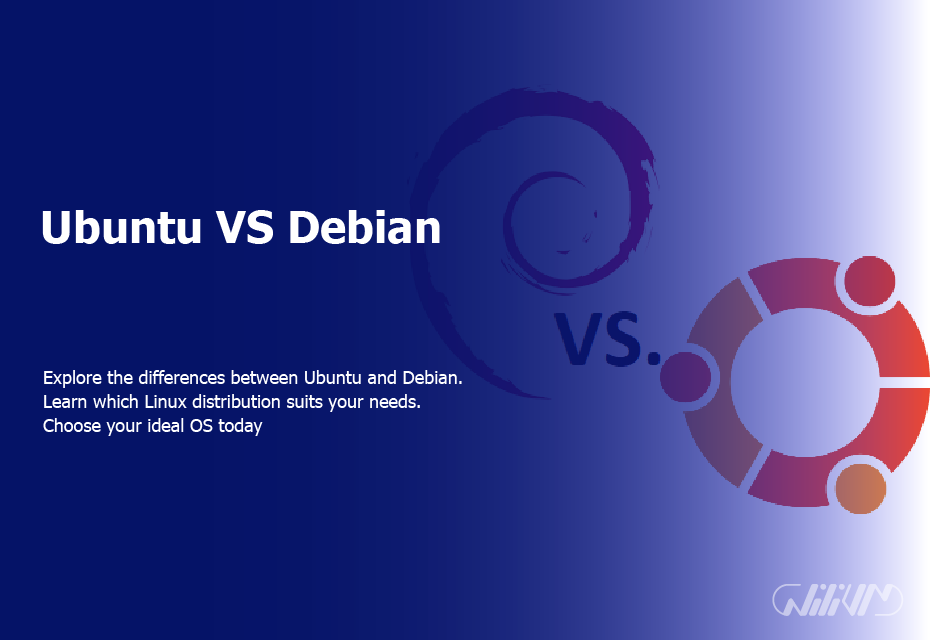Ubuntu VS Debian
There is no question that because of their reliability and versatility, Linux distributions have grown in popularity and are extensively utilized. Debian and Ubuntu are two of the most widely used Linux distributions. On Distrowatch, there are now over 290 active Linux distributions. Among the 290, 131 are Debian derivatives, including the Ubuntu distribution. The remaining 58 distributions are direct descendants of Ubuntu. However, both distributions vary in terms of experience and functionality in every way. As a result, selecting one of the distributions is challenging, making it a tough option.
These are the commonly asked questions about which operating system to use: Debian vs Ubuntu. To be honest, Debian is more suited for experienced users, while Ubuntu is better suited for newcomers. Some individuals disagree with this distinction. Debian now gives every user hands-on control, making it suited for every user while managing its system.
Aside from that, Ubuntu may be a bit tricky to get started with. However, although Ubuntu is developed on Debian, there are significant differences in tools and technology. As a result, they vary on every level, from installation to package management and community support.
Buy Linux VPS now! Compare Ubuntu vs. Debian in our insightful article. Empower your choice.
Contents
- What is Ubuntu?
- Advantages of Ubuntu Linux
- Disadvantages of Ubuntu Linux
- What is Debian?
- Advantages Of Debian
- Disadvantages of Debian
- Installation and User-Friendliness
- Software Repositories and Package Management
- Desktop Environments
- Release Cycle and Stability
- Community and Support
- Customization and Configuration
- Security and Updates
- Performance and Resource Usage
- Enterprise and Server Usage
- Compatibility and Hardware Support
- Popularity and Ecosystem
- Which One to Choose?
- Conclusion
- FAQs
What is Ubuntu?

Unlike Debian, the oldest and most reliable Linux distribution, Ubuntu is relatively new to the market. It was released in 2004 and is based on the Debian distribution. Because Ubuntu is an open-source and free operating system, it is freely accessible to all users. It comes in three distinct official editions: Desktop, Server, and Core for IoT. As a result, Ubuntu may be run on any virtual computer or device. Because Ubuntu is developed from Debian, it is comparable to Debian yet has significant distinctions.
Advantages of Ubuntu Linux
- Unlike Debian, Ubuntu is easy to use and suitable for novices. If you are new to the Linux environment, picking Ubuntu is one of the wisest decisions you can make.
- Ubuntu is extremely adaptable, letting you to operate it on a variety of devices and virtual computers.
- This distribution will be updated on a regular basis.
- Ubuntu can operate on low-spec systems and requires less resources to install and run.
- Beginners might try their luck with Ubuntu, which is simple to learn the fundamentals of Linux.
- The Ubuntu version, particularly the LTS, may be readily updated.
- Ubuntu may be used for both personal and corporate solutions.
- With Ubuntu, you may take advantage of the greatest package management.
Disadvantages of Ubuntu Linux
- Ubuntu is not reliant on its community; competent and experienced developers are sometimes recruited to work on the OS.
- You can acquire Ubuntu releases regularly, but they are not as well tested as Debian, so they are not a particularly reliable choice.
- Ubuntu is not as free as Debian since it offers both free and proprietary software.
What is Debian?

Debian first appeared in 1993 as an open-source and free operating system. It is one of the oldest Linux variants accessible to many Linux administrators, making it the most reliable distribution. Furthermore, you may operate this distribution on a variety of platforms, including laptops, desktops, and servers. Debian, in compared to Ubuntu, is more reliable and adaptable. As a result, it is less ideal for novices to begin studying.
Advantages Of Debian
- The community manages and maintains the Debian distribution, making it community-driven. Its success is due to the efforts of various professional programmers and developers.
- You may simply install many utilities using the Debian operating system. Furthermore, you may install Debian on your PC via CD or in a variety of different methods.
- Debian is very secure owing to its security-focused features.
- Among all Linux distributions, Debian has the most support for hardware architectures ranging from amd64 through arm64 and PowerPC.
- Debian OS is available for free download.
- It includes the largest software repository of any Linux distribution.
Disadvantages of Debian
- If you are new to Linux, Debian is not the best option for you. Debian is a bit tough for users to get started with.
- In comparison to other Linux distributions, it does not have a quick release cycle.
- Debian, unlike other Linux distributions, does not support PPAs.
- It has a rudimentary user interface and the majority of activities are performed through a terminal.
- Unfortunately, the business version is not available.
Installation and User-Friendliness
Ubuntu is very user-friendly, with a simple installation procedure and extensive hardware recognition. Its user interface is intended to be simple, making it an excellent alternative for individuals new to Linux. While Debian is more adjustable after installation, complete hardware compatibility may need extra procedures.
Software Repositories and Package Management
Both distributions make use of the Debian package format and management tools. However, Ubuntu has its own repositories and a more simplified approach to software updates, while Debian’s repositories are huge and provide a greater selection of software options.
Desktop Environments
Ubuntu is well-known for its dedication to providing a polished and user-friendly desktop environment. It comes in a variety of official variants, each with its own desktop environment. Because Debian is more concerned with reliability, it may fall behind in offering the most up-to-date desktop features.
Release Cycle and Stability
Debian is well-known for its reliability, owing to its thorough testing prior to release. As a result, it is a popular option for servers and critical systems. Ubuntu finds a mix between stability and up-to-date software with its regular release cycle and LTS (Long-Term Support) editions.
Community and Support
Ubuntu and Debian both have active communities and substantial documentation and forums. Because of its bigger user base, Ubuntu often receives faster replies to troubleshooting inquiries, although Debian’s community may be more technical owing to its nature.
Customization and Configuration
Debian offers users with more customisation options. During installation, users may choose their favorite desktop environment, resulting in a more personalized experience. The emphasis on user-friendliness in Ubuntu loses some of this granular control.
Security and Updates
Both distributions emphasize security, although Ubuntu’s frequent releases may make security fixes more readily available. Because of Debian’s stability-first policy, updates may be somewhat delayed.
Performance and Resource Usage
Debian’s basic approach to installation and resource management may help it run faster on older hardware. Additional features and user-friendly interfaces in Ubuntu may take more resources.
Enterprise and Server Usage
Debian is a preferred option for server settings because to its reputation for reliability and security. Ubuntu’s LTS editions, which provide a blend of stability and newer software, are also commonly used in corporate settings.
Compatibility and Hardware Support
The focus on usability in Ubuntu typically leads to improved out-of-the-box hardware compatibility. While Debian is not far behind, certain devices may need further preparation.
Popularity and Ecosystem
Because of Ubuntu’s user-friendly approach, it has a bigger user base, resulting in a more comprehensive ecosystem of software, documentation, and community support. While Debian is widely used, it may cater to more sophisticated users.
Which One to Choose?
The decision between Ubuntu and Debian is ultimately determined by your priorities. If stability and server usage are important, Debian may be the best option. Ubuntu is the best choice for newbies and anyone looking for a sophisticated desktop experience.
Conclusion
There is no clear victor in the Ubuntu vs. Debian debate. Each distribution has its own set of advantages, and the decision comes down to your own requirements and tastes. Both provide the robust Linux experience that has helped to make the operating system so popular among computer aficionados.
FAQs
Can I switch from Ubuntu to Debian or vice versa?
Switching distributions is possible, but it might require a fresh installation and data backup.
Which distribution is better for servers?
Debian's stability makes it an excellent choice for server environments.
Does Ubuntu or Debian support proprietary software?
Yes, both distributions offer options to install proprietary software if needed.
How often does Ubuntu LTS receive updates?
Ubuntu LTS versions receive updates every two years for five years after the initial release.







